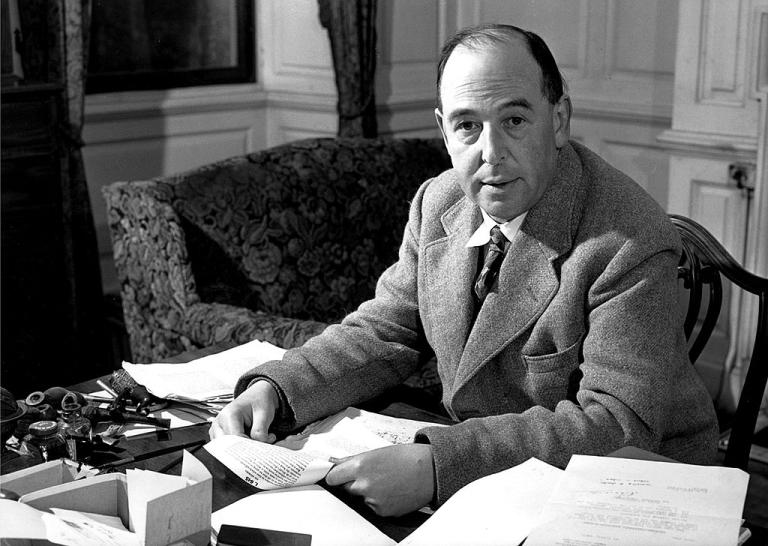C. S. Lewis is known for his Christian apologetics, his imaginative fiction, and his literary scholarship. But, though he has a reputation for being uninterested in “current events,” he also wrote about politics–in particular, his concerns about tyranny and totalitarianism.
So observes Acton scholar and Calvin University professor Micah Watson in his article for Religion & Liberty Online entitled C.S. Lewis on the Specter of Totalitarianism.
The article includes a trenchant discussion of Abolition of Man and a useful comparison and contrast with another opponent of totalitarianism, the libertarian atheist Ayn Rand. So Prof. Watson’s piece is worth reading in its entirety. Here I would just like to share with you a few quotations from Lewis that Prof. Watson cites and discusses:
“In every age those who wish to be our masters, if they have any sense, secure our obedience by offering deliverance from our dominant fear. When we fear wizards, the Medicine Man can rule the whole tribe. When we fear a stronger tribe, our best warrior becomes King. When all the world fears Hell, the Church becomes a theocracy. “Give up your freedom and I will make you safe” is, age after age, the terrible offer. In England the omnipotent Welfare State has triumphed because it promised to free us from the fear of poverty.” [from a 1959 letter to a Chicago journalist]. . . .
“We have on the one hand a desperate need: hunger, sickness, and the dread of war,” Lewis writes in his essay “Is Progress Possible?” “We have on the other [hand] the conception of something that might meet it: omnicompetent global technocracy. Are not these the ideal opportunity for enslavement?”
Whereas the classical liberal understanding of politics is that we empower the state through our consent because it will protect our rights, Lewis feared the modern state purports to “do us good or make us good. . . . We are less their subjects than their wards, pupils, or domestic animals. There is nothing left of which we can say to them, ‘Mind your own business.’ Our whole lives are their business.” [“Is Progress Possible?”]
Let’s apply these insights today. Starting with fear.
Fear of terrorism led to a surveillance system intended to identify terrorists but that is now being used to monitor ordinary citizens.
Fear of disease led to wholesale restrictions on churches, businesses, and individuals during the COVID lockdowns.
Fear of suffering led to laws legalizing euthanasia, which states and nations such as Canada keep expanding to devalue more and more categories of human life. We might include permissive abortion laws as another example. The result is a devaluation of human life that all tyrannies seek to achieve.
Can you think of other fears people have today that can lead to tyrannous outcomes?
The laudable goal to alleviate suffering, protect us from disease, and protect us from terrorism–as well as make us safe from poverty, the various promises of Communism, etc.–are all examples of Lewis’s comment about how the state takes away our freedoms in the effort to “do us good or make us good.”
“Making us good” is what God does, not the state. But wokery is an effort to do just that, and it is influencing both formal and informal public policy, to the point of censorship, cancellation, and coercion.
Can you think of other examples?
Conservatives too are liable to these fears and moral idealism. Integralism and its Protestant varieties also seek to address our fears and make the whole nation good, at the expense of eliminating democracy and Constitutional civil liberties.
Photo: C. S. Lewis by Aronsyne, CC BY-SA 4.0 <https://creativecommons.org/licenses/by-sa/4.0>, via Wikimedia Commons













